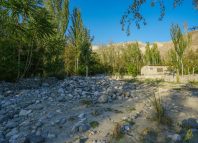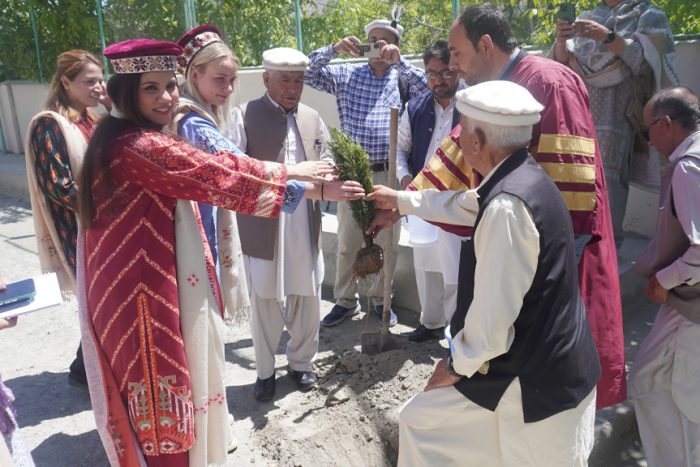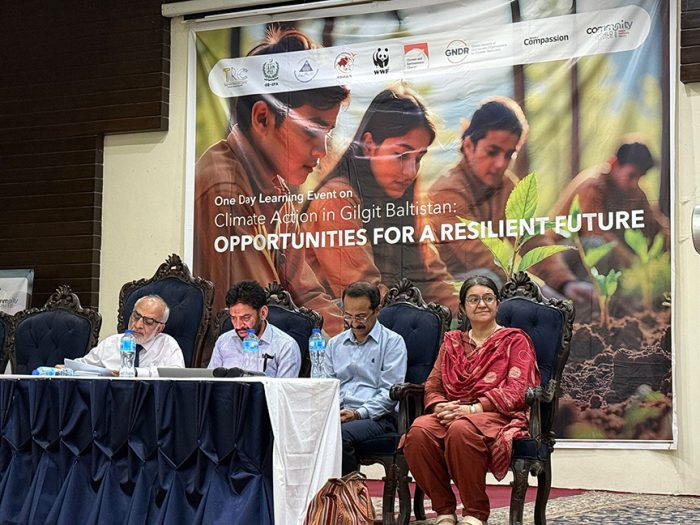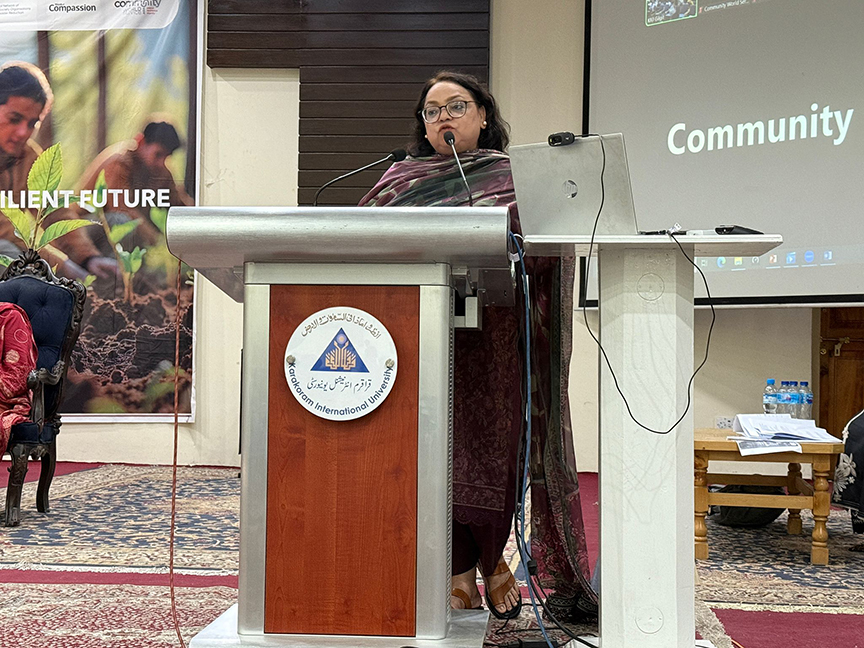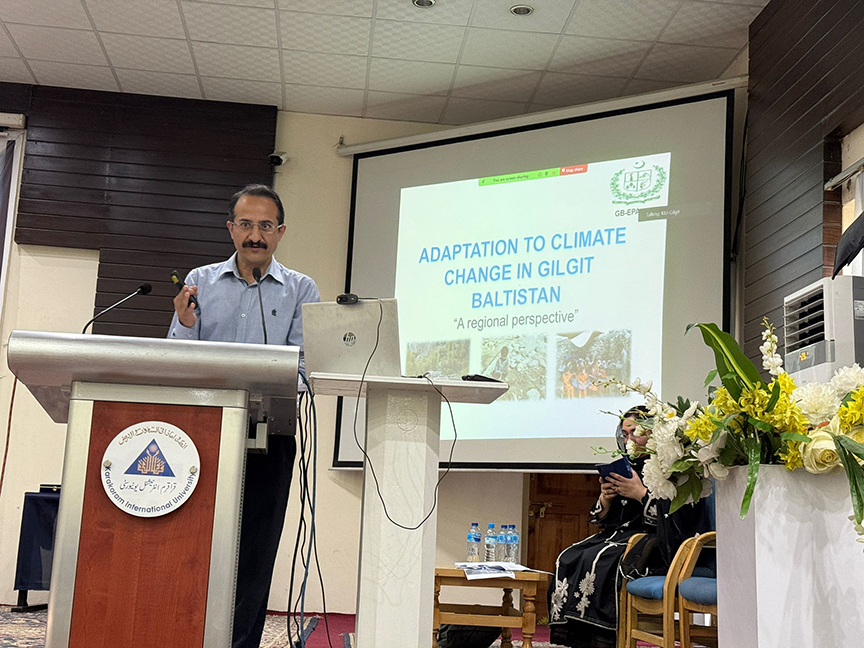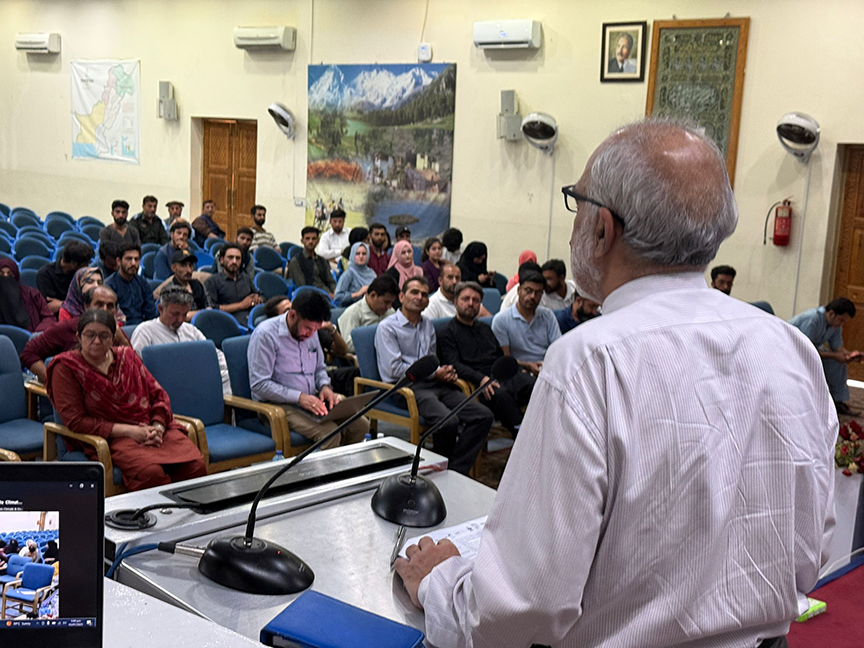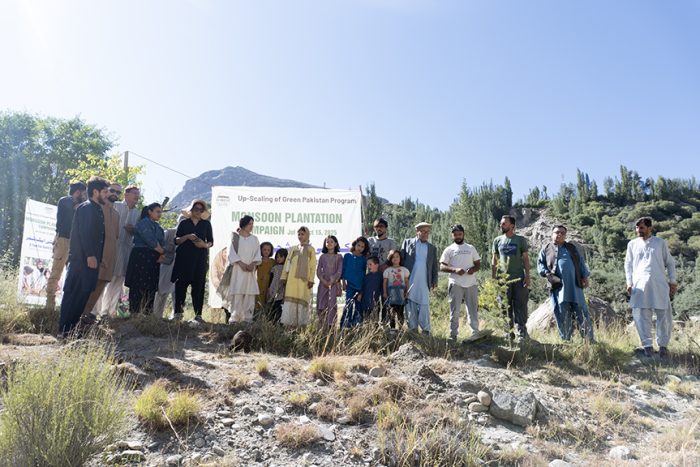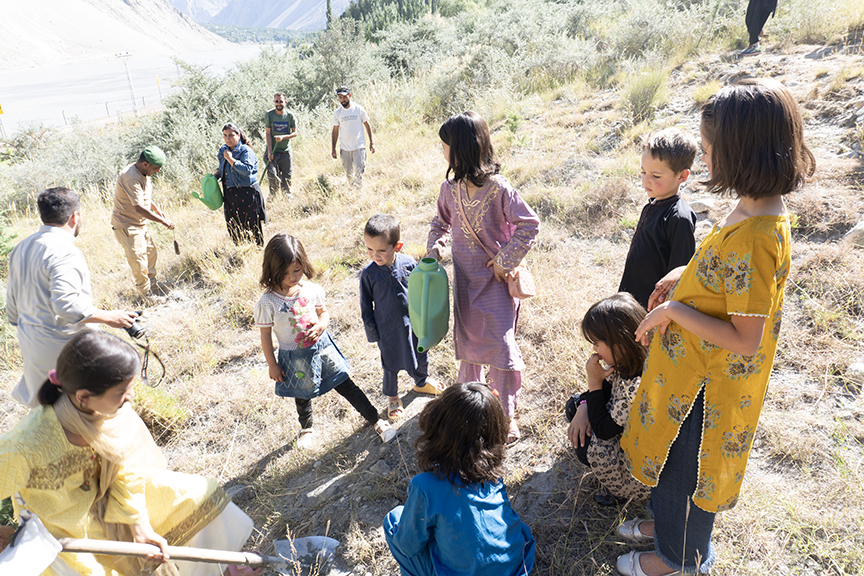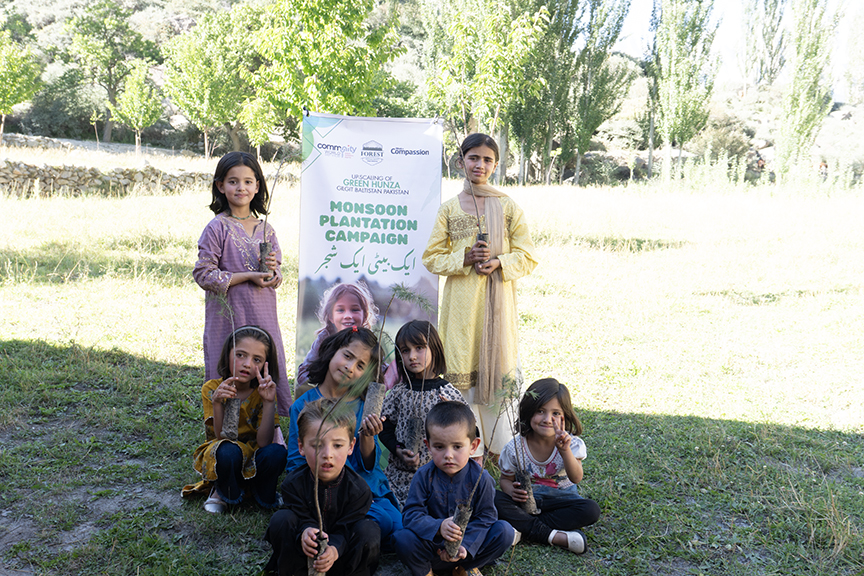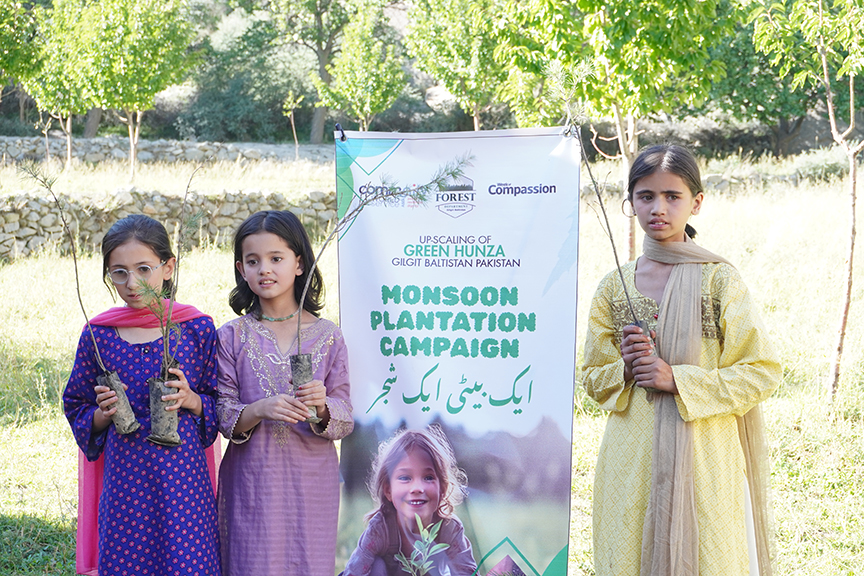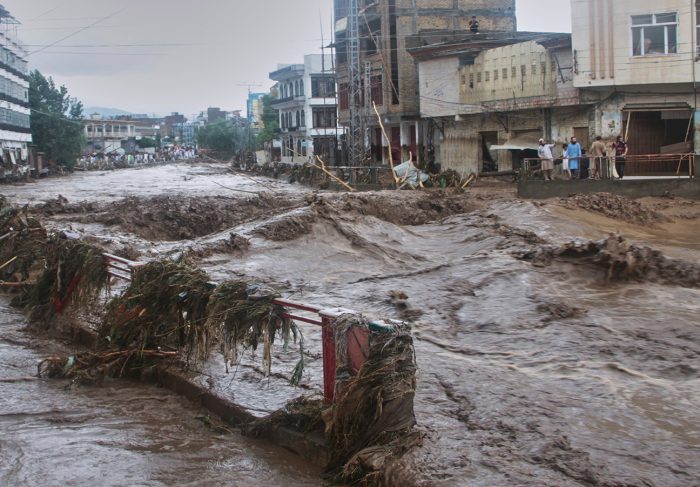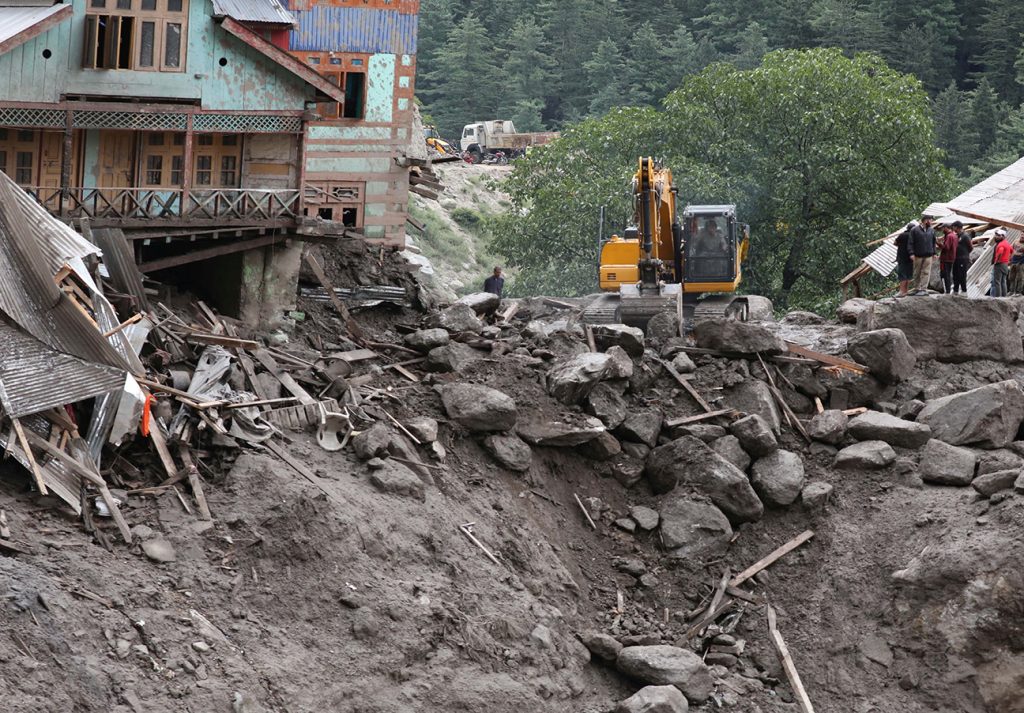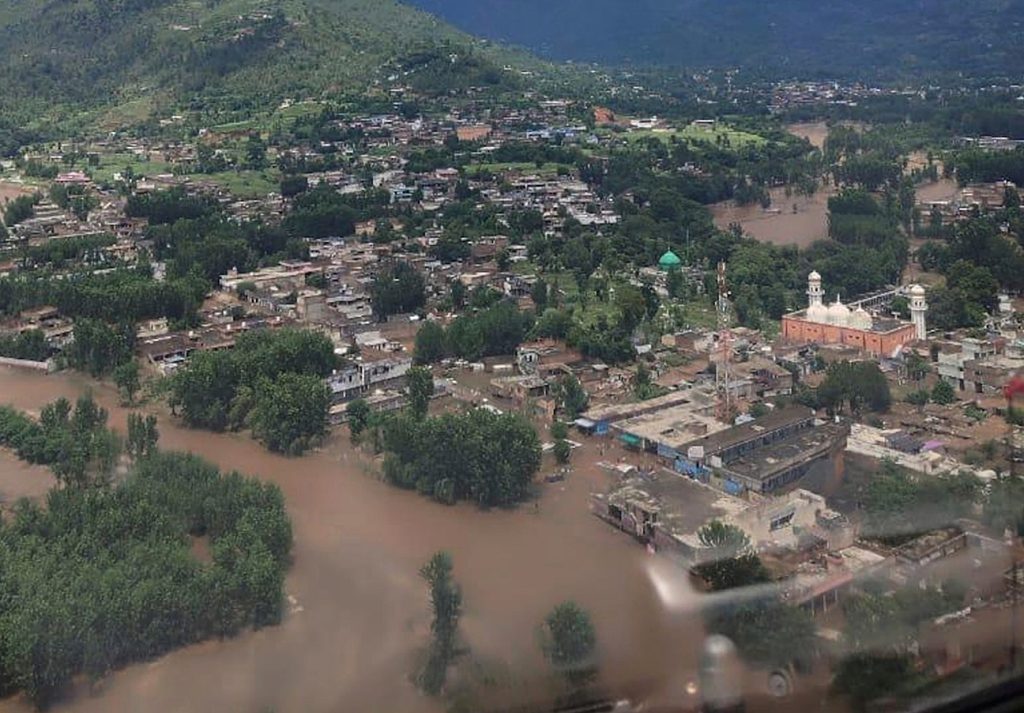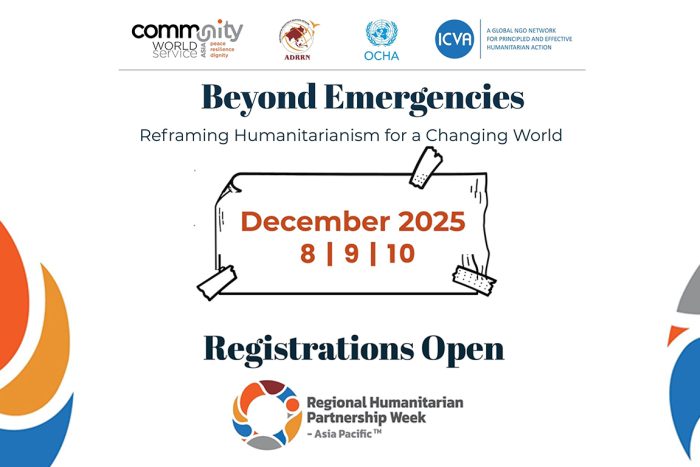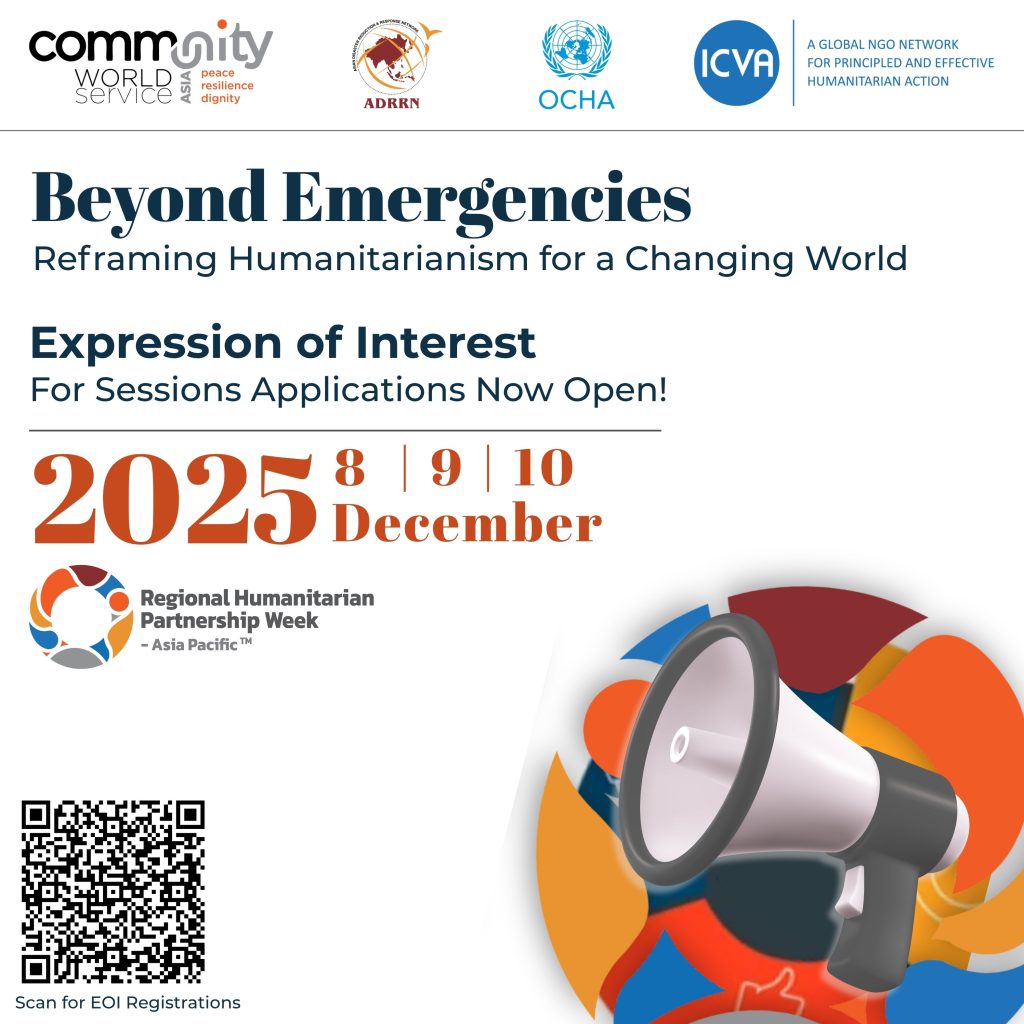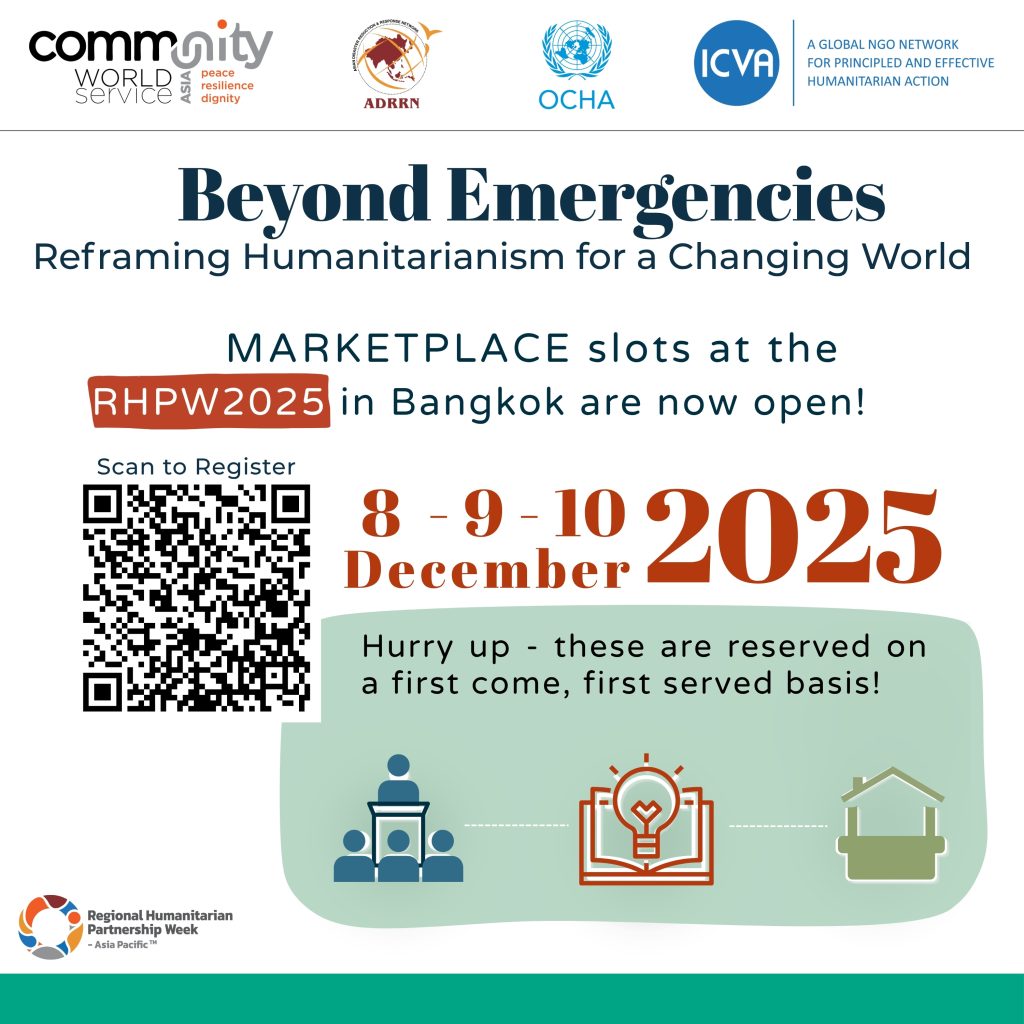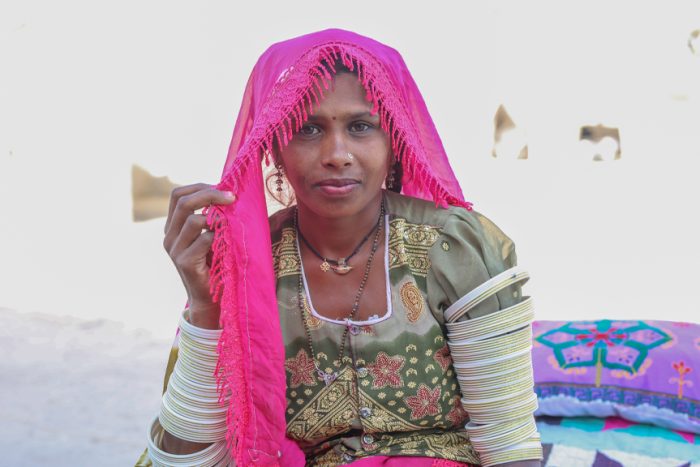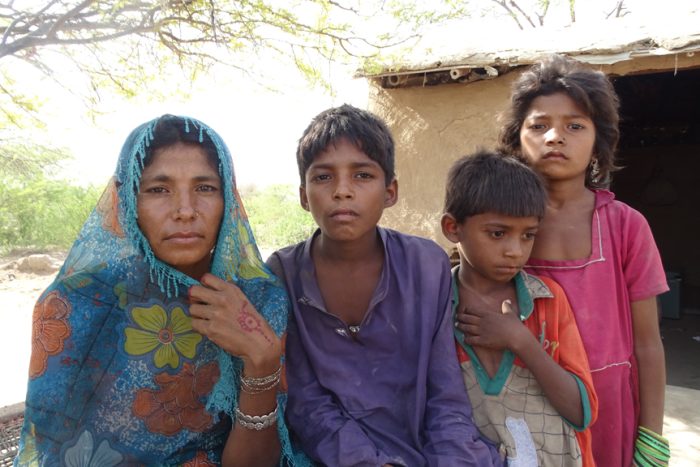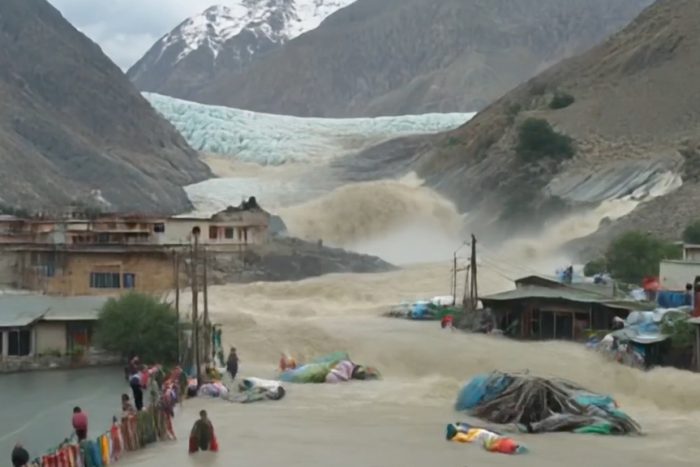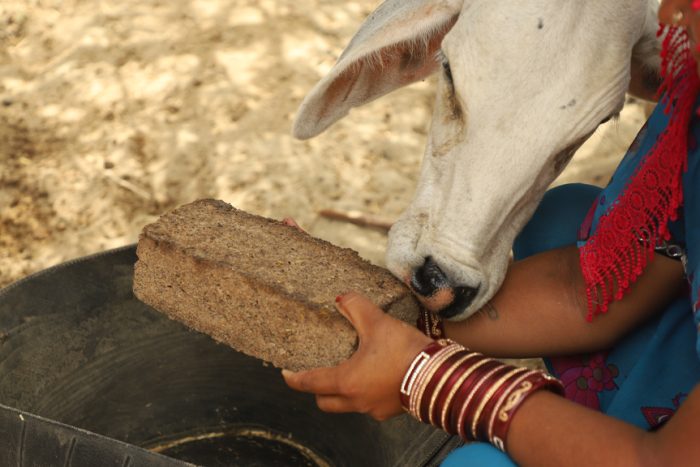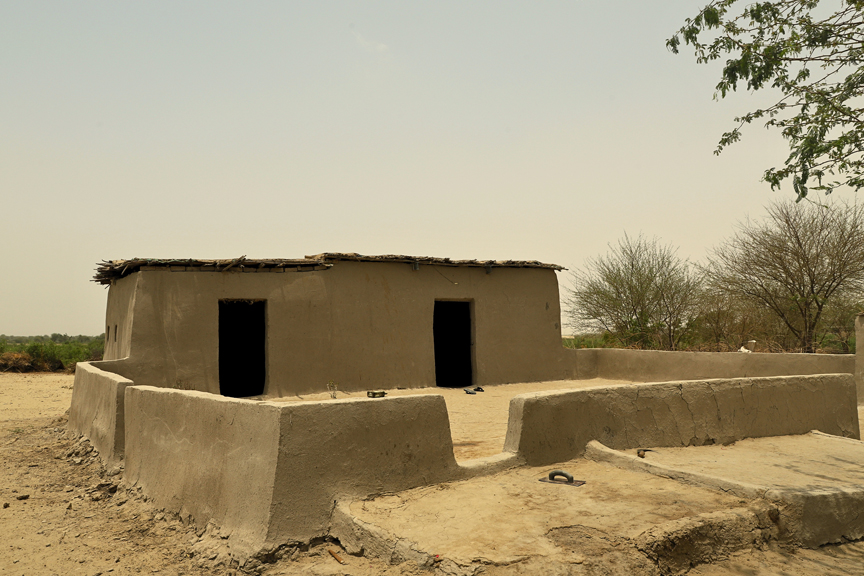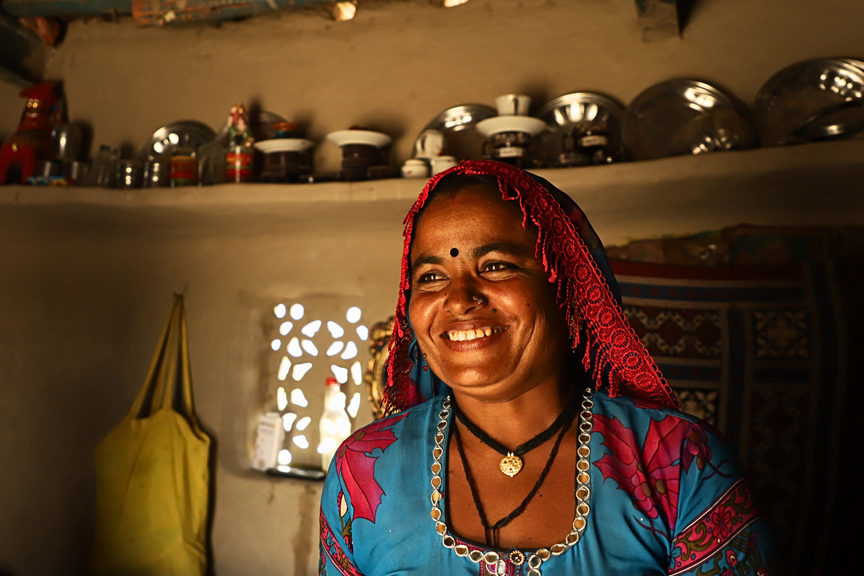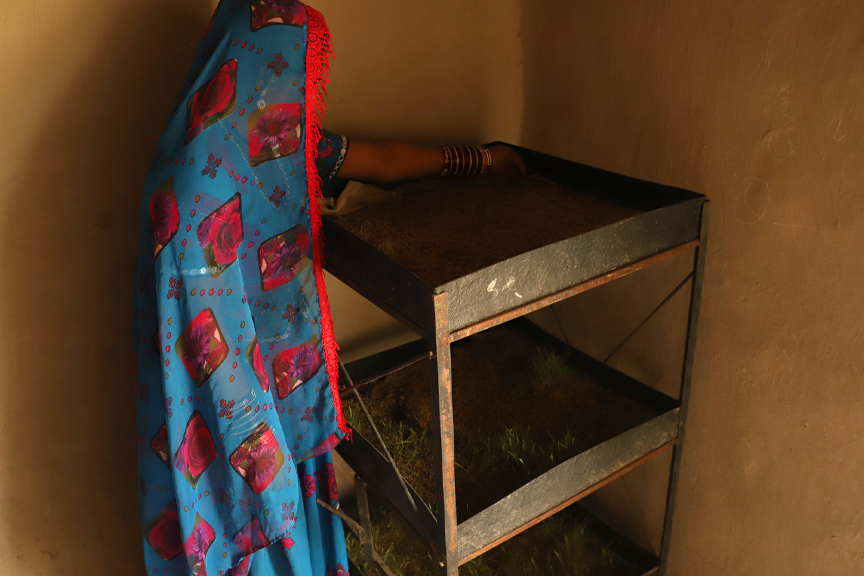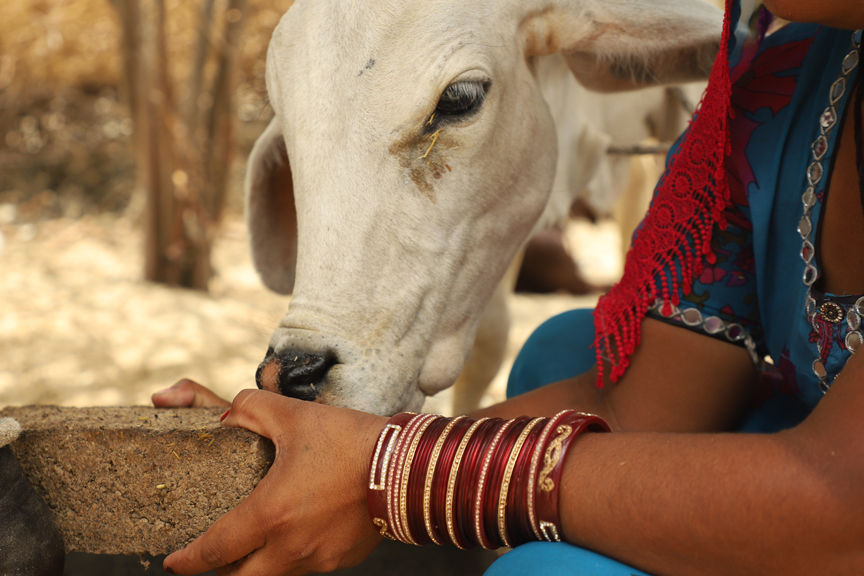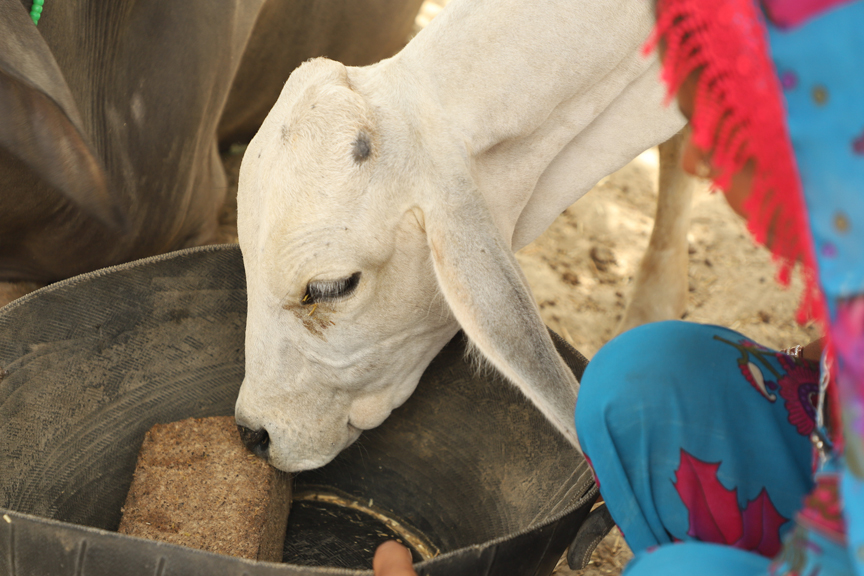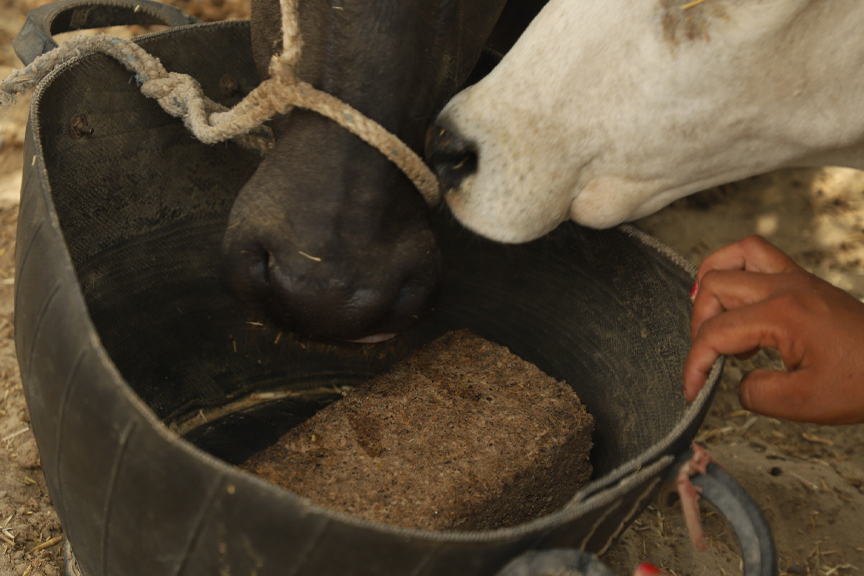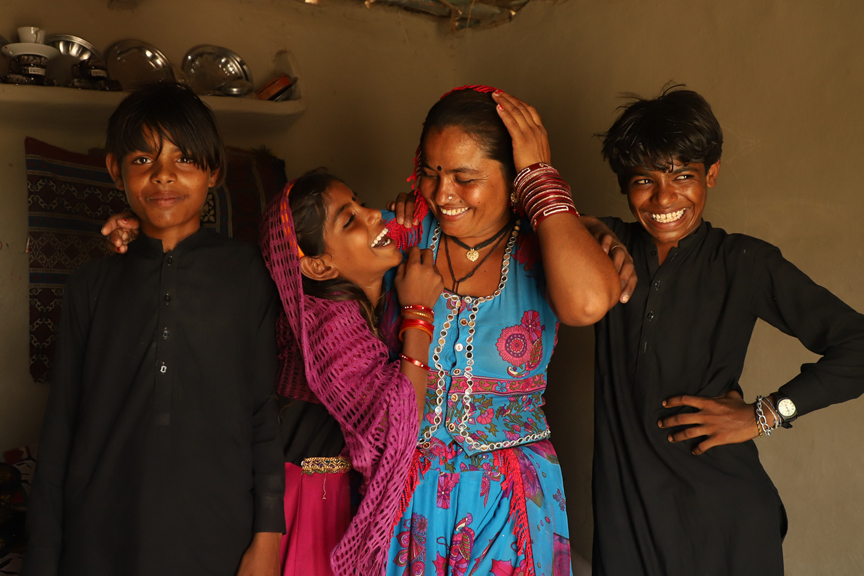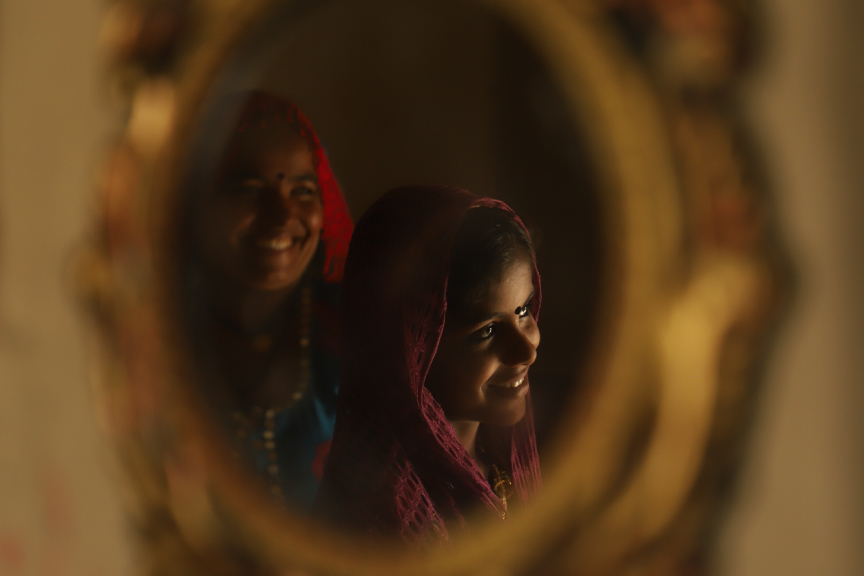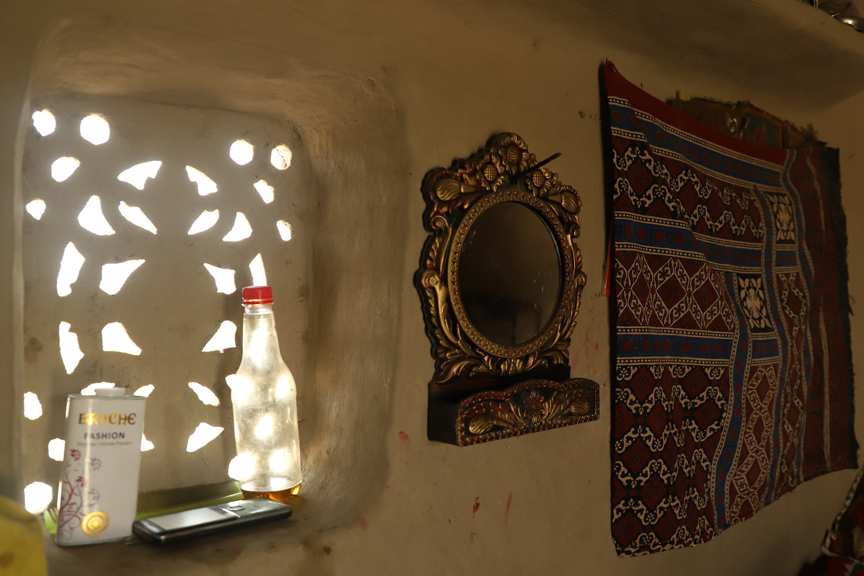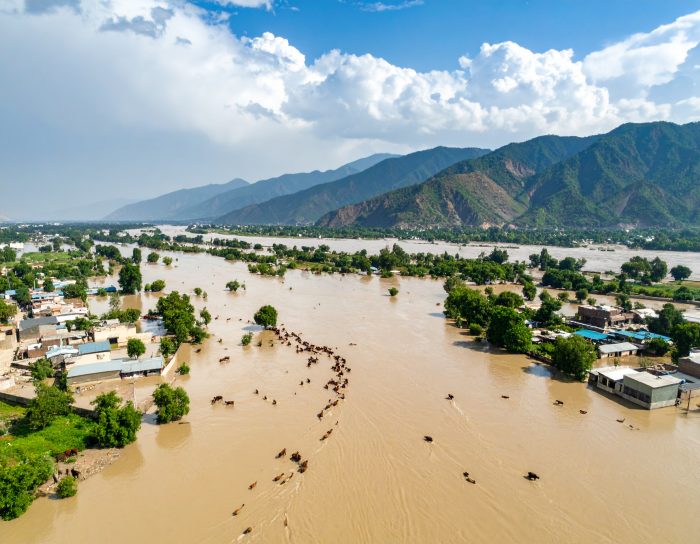On April 30, 2025, Hunza Public School became a vibrant hub of intergenerational learning, as students and community elders came together with a shared commitment to climate awareness. In partnership with Community World Service Asia (CWSA), the school hosted a Climate Change Education & Awareness event that highlighted the transformative potential of youth activism and community-led engagement.
The event brought together students, teachers, and local leaders for a dynamic dialogue on environmental stewardship, glacier preservation, and sustainable living. Guests from Act Church of Sweden and Community World Service Asia (CWSA) joined the gathering, highlighting the transformative role of education in fostering climate-resilient communities.
A traditional welcome ceremony, rooted in the customs of Gilgit-Baltistan, honored the guests with pharsin, locally crafted caps worn by both men and women. The cultural exchange continued with folklore songs recounting the ancient legacy of the region’s glaciers, followed by a spirited dance performed jointly by elders and youth.

Students voiced their concerns with passion and clarity, speaking on the urgent threats of global warming, glacier retreat, and climate-induced disasters. Their discussions reflected not only the gravity of the challenges but also the ingenuity and commitment needed to overcome them.
“Our glaciers are vanishing faster than our leaders are acting. If we don’t push for clean energy and water conservation today, our children will inherit a barren land,” shared Farida, a Grade 8 student.
Naema, a Class 7 student, spoke with passion, “Climate change isn’t just science; it is our reality. Last year’s floods destroyed homes. We need schools to teach survival skills, not just theories.” Her words echoed the lived experiences of many in the region, underscoring the urgency of climate education rooted in real-world resilience.

The event featured a satirical play titled “Our Planet Earth,” in which extraterrestrial visitors confronted humanity for its environmental negligence. The performance concluded with a dramatic ultimatum: offer solutions or surrender the planet. The message was clear and compelling; the time to act is now.
Students also presented innovative scientific models focused on climate adaptation. From water filtration and slope stabilisation to rainwater harvesting, biodiversity conservation, and green school initiatives, their projects reflected both creativity and a deep commitment to sustainable living.
“Our students are well aware of climate change and its solutions. What they need is support and facilities to develop these ideas and emerge as future decision-makers,” highlighted Memoona, senior teacher and focal person at Hunza Public School.
“Our ancestors said glaciers and peaks are bound in eternal union. The mountains provide strength, the glaciers give water. Now this union is failing because we broke our covenant with nature. This is the time to act, by harnessing the power of youth through education and community support,” added Nazia Zafar, CWSA staff in Hunza, citing the wisdom of indigenous traditions.

A Pledge for a Sustainable Future
With CWSA’s continued commitment to climate education, students left the event not only informed but inspired, ready to champion sustainable practices, safeguard their glaciers, and lead transformative change within their communities.
The Earth’s future is in our hands — and the time to act is now.




